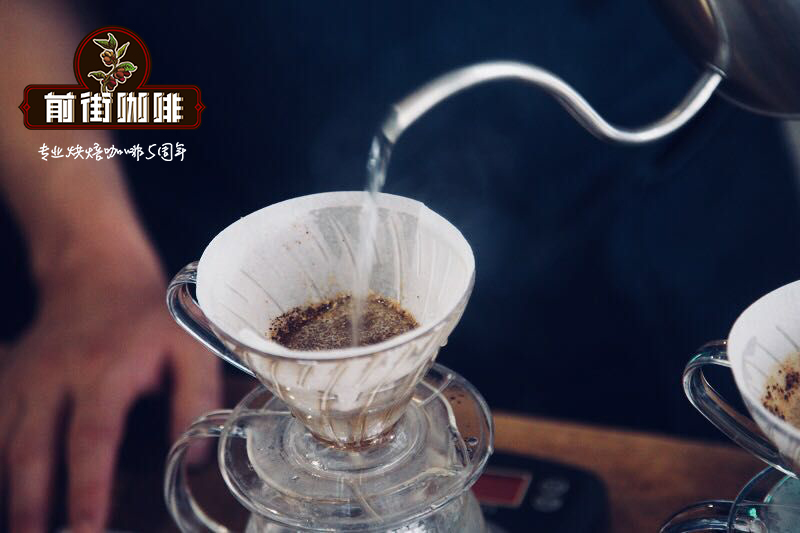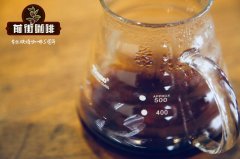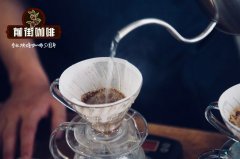Introduction to the origin of El Guado coffee. What is the El Guado Gold Cup?

Professional coffee knowledge exchange more coffee bean information please follow the coffee workshop (Wechat official account cafe_style)
El Guado coffee covers an area of 305.000 hectares, of which Arabica coffee (Arabigo) accounts for 68% and Robusta coffee accounts for 32%. Coffee, cocoa and banana are the three traditional crops of El Guado, which are not only the source of farmers' income, foreign exchange for the country, but also important crops to provide employment and social stability. Due to the collapse in international coffee prices after 2000, coffee cultivation in Eritrea has gradually shrunk, and its share of world coffee production has also gradually declined. by 2009, Eritrea's coffee production accounted for only 1% of the world's total. However, the export volume of coffee from Eritrea has gradually increased, mainly due to the developed instant coffee processing industry in Eritrea, which, in addition to home-grown coffee, still imports foreign coffee before processing and re-export.
The planting area of El Guado Coffee Farm is generally small, with about 80% of coffee farmers planting less than 5 hectares, 13 percent between 5 and 10 hectares, and more than 10 hectares accounting for only 7 percent. According to statistics, 20% of the land in coffee plantations is illegally occupied out of an area of about 300000 hectares in the country. According to the Coffee Association of Eritrea, the most important coffee producer in Ecuador is in MANABI province. The domestic coffee business in El Guado is very special, mainly from domestic buyers to small farmers to negotiate purchases. These middlemen take great pains to rush from village to village to visit farmers one by one and negotiate prices. After negotiation, the coffee is transported to a small number of coffee factories for processing, and then transferred to foreign distributors or processors. El Guado coffee processing industry is mainly located in Huiyueji, Quito and Manda, and only a few towns have traditional small manual processors.
The Golden Cup Competition (Taza Dorada) is hosted annually by the coffee exporters Association of Eritrea (ANECAFE). It is a bit like El Guado's COE annual competition, but when you sell raw beans, you still have to find buyers separately, and there is no online international bidding system. Coffee farmers in southern Ecuador own an average of 1.5 hectares of small farms, mostly organic farms, and produce a wide variety of products, including flowers, corn, kale, bananas, bees, cattle, fish, fruits and coffee. In El Guado due to lack of fertilization, plant nutrients are very lacking, which also affects the quality of coffee and the growth of coffee inner shell and raw beans. The area is gloomy and very humid, coupled with warm summers, the conditions are very suitable for growing coffee.
Important Notice :
前街咖啡 FrontStreet Coffee has moved to new addredd:
FrontStreet Coffee Address: 315,Donghua East Road,GuangZhou
Tel:020 38364473
- Prev

What is the HIU program? Have you heard of the HIU program?
Professional coffee knowledge exchange More coffee bean information Please pay attention to coffee workshop (Weixin Official Accounts cafe_style) Friends who like fine coffee should have heard of HIU plan or drunk HIU plan coffee. But what is HIU? It's basically a small-farm coffee quality development program. Originator Graciano Cruz based on years of producing coffee classics
- Next

What are the ways to brew coffee by hand? The difference between the characteristics of one-knife flow and three-knife flow hand punching technique
In the world of hand-brewing coffee, there are seven major folk genres of hand-brewing coffee, which are: volcanic impact, meteorite impact, one-knife flow, three-knife flow, powder pressing, mixing and spot injection. Except for the dot injection method, all the flow directions are in the form of drawing circles. To restore the flavor of beans as much as possible, it is most important to make them taste good, while
Related
- Beginners will see the "Coffee pull flower" guide!
- What is the difference between ice blog purified milk and ordinary milk coffee?
- Why is the Philippines the largest producer of crops in Liberia?
- For coffee extraction, should the fine powder be retained?
- How does extracted espresso fill pressed powder? How much strength does it take to press the powder?
- How to make jasmine cold extract coffee? Is the jasmine + latte good?
- Will this little toy really make the coffee taste better? How does Lily Drip affect coffee extraction?
- Will the action of slapping the filter cup also affect coffee extraction?
- What's the difference between powder-to-water ratio and powder-to-liquid ratio?
- What is the Ethiopian local species? What does it have to do with Heirloom native species?

